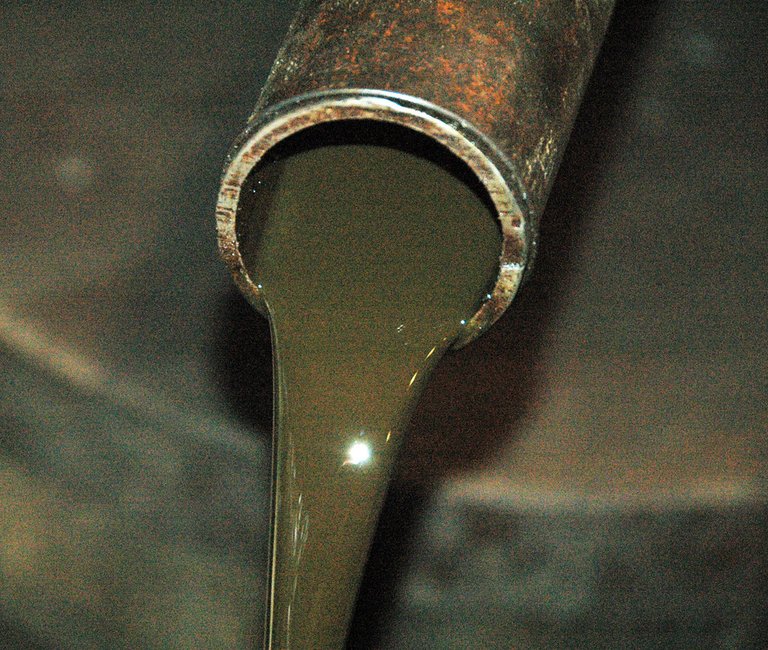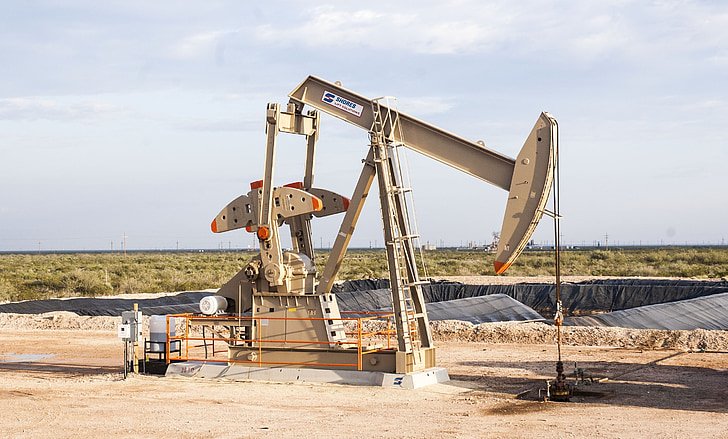You Don't Know How Crude Oil Came Into Existence?
Crude oil is what the majority of countries depend on, and they are always proud when they say they have it because it is black gold and countries that have large deposits and reserves stand tall in a world where it is important for our day-to-day activity but how did we get here and were did this crude come from.
It isn't like we all see it under our grounds because I have seen a lot of boreholes that have been drilled into the ground than I have seen apple trees in my life, and I can say that what comes out from the drilling is water. Why wouldn't it be since we are sitting, moving, and building on water covered with land?
I have heard that oil and gas are time capsules of ancient lives sealed underground under high pressure. I believe this because it is what we have concluded upon. So we could say that what we are enjoying today is a combination of dead matter which would become one day, pressure, and a mix of chemistry.
According to simple chemistry, crude oil is just a combination of hydrogen and carbon, their chain and formation, that's a different topic entirely but in one word, they are hydrocarbons. These fuels come from tiny organisms like plankton and algae that lived in the oceans for millions of years before recent years. So our science says that when these organisms died, they got buried under the ground by layers of mud, sand, and pressure. It is agreed that these organisms didn't rot like other organisms did because they were in places with little to no oxygen and there were no bacteria to feed on them.
Under the right pressure and temperature for millions of years, they became crude oil and natural gas. At lower temperatures, we get oil and at higher temperatures, we get gas. When it comes to getting oil out of the ground, there is something known as the oil window which when you miss, you just get carbon sludge because oil reserves can shift over time thanks to geological movement, erosion, uplift, and faulting.
Now we know how oil became present but why did they have to go deep down into the ground? Well, all thanks to gravity for sending everything down. Oil is lighter than water, so it tends to move upwards until they are stopped by a rock on top known as a Cap rock which is non-porous. At the early stage of discovering oil, humans didn't know how to find it, we were just guessing but in recent times, geologists use seismic waves sort of like an ultrasound for the ground just like doctors do for pregnant women.
Now, before you start to think that you will become oil someday, most oils come from marine organisms that died millions of years ago. Actually, we are grateful for what we have, but then we have created a lot of carbon causing climate issues just by exploring and extracting oil but this is not the only problem that has come with oil exploration. Other problems like habitat destruction, oil spills, methane leaks, and political conflicts are also a result of drilling for this oil from the ground. When next you are driving, think if both the good and the bad that is being created just for you to put your oil-consuming car on the road.
If You Want To Study Further
https://www.norskpetroleum.no/en/petroleum-resources/petroleum-formation/
https://oceanexplorer.noaa.gov/explorations/03mex/logs/sept25/media
http://large.stanford.edu/courses/2022/ph240/ashai1/
https://www.chartindustries.com/Articles/Where-Does-Crude-Oil-Come-From-And-5-Other-Things
https://www.sciencedirect.com/topics/social-sciences/crude-oil
https://www.britannica.com/science/crude-oil


Thanks for your contribution to the STEMsocial community. Feel free to join us on discord to get to know the rest of us!
Please consider delegating to the @stemsocial account (85% of the curation rewards are returned).
Thanks for including @stemsocial as a beneficiary of this post and your support for promoting science and education on Hive.